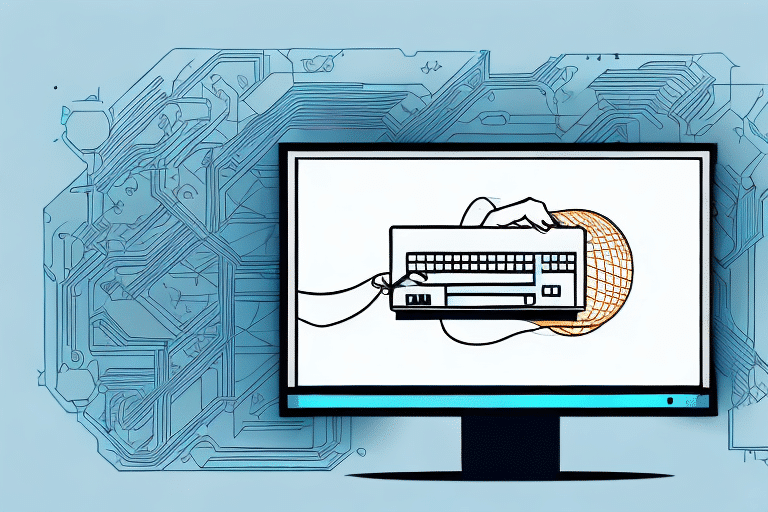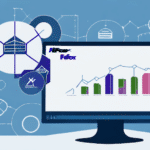Ensuring Reliable Power Management for Epicor ERP
For businesses relying on Epicor ERP software to manage operations, dependable power management is crucial for maintaining maximum uptime. Epicor ERP handles a multitude of business processes simultaneously, necessitating a stable power supply to ensure seamless functionality. Implementing an Uninterruptible Power Supply (UPS) system is one effective way to guarantee a reliable power source. This article delves into the steps required to connect, optimize, and manage UPS systems, ensuring your Epicor ERP operates smoothly with minimal downtime.
The Critical Role of UPS in Epicor ERP Operations
Preventing Downtime and Data Loss
Reliable power management is fundamental to the success of any organization utilizing Epicor ERP. Power failures can lead to data loss, disrupting operations and harming business processes. UPS systems automatically switch to a backup power source during outages, preventing downtime and allowing Epicor ERP to continue functioning without interruption. This continuity ensures customer satisfaction and overall business success.
Protecting Hardware from Power Fluctuations
Beyond preventing downtime, UPS systems safeguard your hardware against power surges and spikes, which can damage servers, computers, and other critical devices. By regulating voltage and providing surge protection, UPS systems help avoid costly repairs or replacements, thereby preserving your IT infrastructure.
Enhancing Energy Efficiency and Sustainability
UPS systems can also contribute to reducing energy costs and promoting sustainability. They can be programmed to shut down non-essential equipment during low usage periods, decreasing energy consumption and lowering electricity bills. This not only results in cost savings but also supports environmentally responsible business practices.
Selecting the Appropriate UPS Solution for Your Epicor ERP
Assessing Power Capacity and Runtime Requirements
Choosing the right UPS solution involves evaluating the specific needs of your organization. Key factors include the power capacity of the UPS, the number of devices it needs to support, and the required runtime during power outages. Ensuring that the UPS can handle the load and provide sufficient backup time is essential for maintaining uninterrupted ERP operations.
Considering Environmental Factors
The installation environment plays a significant role in UPS performance. Factors such as temperature and humidity can impact the system's efficiency and longevity. Selecting a UPS that is suited to your installation environment helps maintain optimal performance and reduces the risk of hardware malfunctions.
Scalability and Future-Proofing
As your business grows, so do your power requirements. A scalable UPS solution allows you to easily add more capacity to accommodate additional equipment without the need for complete system overhauls. This flexibility ensures that your UPS system can grow alongside your business, providing long-term reliability.
Optimizing UPS Performance for Epicor ERP
Regular Maintenance and Monitoring
To ensure UPS reliability and functionality, regular maintenance checks are essential. This includes verifying that the UPS battery is fully charged, replacing batteries as needed, and monitoring for any potential power issues. Implementing a routine maintenance schedule helps prevent unexpected failures and extends the lifespan of your UPS system.
Proper Placement and Sizing
The physical placement of your UPS system can significantly impact its performance. Situating the UPS in a cool, dry location away from direct sunlight and heat sources helps prevent overheating and prolongs system life. Additionally, accurately sizing the UPS to match your power demands ensures efficient operation and avoids the pitfalls of both under-sized and over-sized systems.
Utilizing UPS Management Software
Leveraging UPS management software can enhance system monitoring and management. Tools that provide real-time monitoring, alert notifications, and performance analytics enable proactive maintenance and swift issue resolution. Integrating such software with Epicor ERP can further streamline operations and minimize downtime risks.
Integrating UPS with Epicor ERP
Ensuring Compatibility and Proper Configuration
Seamless integration of the UPS with Epicor ERP involves connecting the UPS to essential devices and configuring the system correctly. Ensuring software compatibility and setting up alert systems are critical steps in maintaining reliable ERP functionality. Proper integration allows for real-time monitoring and automated responses to power events.
Continuous Monitoring and Testing
Regularly monitoring the UPS system's performance, including battery health and charge status, is vital. Conducting routine tests ensures that the UPS can handle power outages and surges effectively. Continuous monitoring helps identify and address issues before they escalate, ensuring uninterrupted ERP operations.
Best Practices for Managing UPS Systems in Epicor ERP
Implementing Proactive Monitoring Systems
Adopting proactive monitoring systems can significantly enhance UPS management. These systems track power consumption, runtime, and the status of connected devices, providing valuable insights into UPS performance and potential issues. Implementing alert mechanisms ensures that relevant personnel are promptly notified of any anomalies.
Developing a Comprehensive Backup Plan
Having a robust backup plan is essential for mitigating the impact of power outages or UPS failures. This can include maintaining a secondary UPS system or a generator to provide additional backup power. Additionally, a documented disaster recovery plan outlines the steps to take during emergencies, ensuring business continuity even in adverse conditions.
Troubleshooting and Maintaining Your UPS System
Identifying and Resolving Common Issues
Despite regular maintenance, UPS systems may encounter issues such as battery failures, communication breakdowns, or software incompatibilities. Effective troubleshooting involves identifying the root cause of these problems and implementing corrective actions promptly. In some cases, replacing faulty components or the entire UPS unit may be necessary to restore functionality.
Planning for Maintenance and Upgrades
Periodic maintenance and upgrades are crucial for sustaining UPS performance. Scheduling routine checks, battery replacements, and software updates helps maintain system reliability. Additionally, budgeting for these activities ensures that maintenance and upgrades are conducted without disrupting business operations.
Benefits of a Robust UPS Solution for Epicor ERP
Implementing a robust UPS solution offers numerous advantages, including enhanced reliability and uptime for your Epicor ERP system. These benefits translate into improved customer satisfaction, operational efficiency, and overall business success. Furthermore, UPS systems protect electronic equipment from power interruptions, ensuring data integrity and safeguarding IT investments.
In conclusion, effective UPS management is vital for securing reliable power for your Epicor ERP system. By connecting, optimizing, and managing UPS systems diligently, businesses can maintain maximum uptime, protect critical infrastructure, and ensure seamless operations. Regular maintenance, proper integration, and proactive monitoring are key to achieving sustained reliability and business continuity.




















